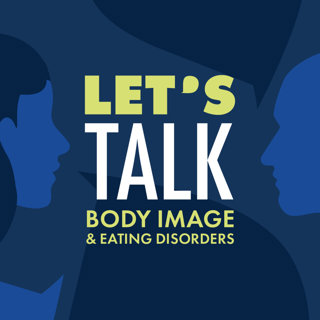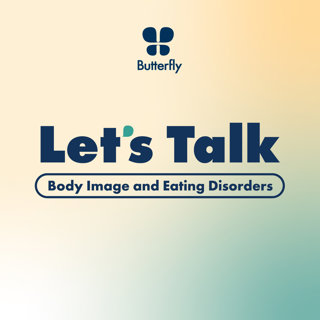
Where's the limit to enhancing your looks?
Paying attention to your appearance is a very human trait. And though we talk about accepting our bodies and learning to love them, most of us still think about our image a lot. We're not the only species that groom,” says researcher and clinical psychologist Deb Mitchison. “Most species are interested in how they look so it's not a drive that I think we can expect to eliminate.” The problem is that parts of society take advantage of our natural drive to look and be better. They profit from creating insecurities around how we present to the world. This can lead to body image issues and eating disorders. The situation raises some philosophical questions about our society. At what point does enhancing or investing in our appearance turn into a problem? “There's a need to constantly update yourself or be better than what you are,” says philosopher Mary Zournazi. “It can give you power but be detrimental at the same time.” In this episode of Butterfly: Let’s Talk, we explore the difference between putting your best foot forward and going too far, both for society and your own physical and mental health. Talk to the Butterfly National Helpline Find out about Butterfly's Prevention Programs read this article: How far is too far? find out more about Dr. Deb Mitchison find out more about Mary Zournazi Follow Jess King on InstagramSee omnystudio.com/listener for privacy information.
2 Aug 202231min

In depth with body acceptance advocate Bella Davis
A few years ago, Isabella Davis impulsively took a photo of her body and posted it to her Instagram account. It was an act of defiance. She was sick of being told she wasn’t good enough, that she needed to go on a diet, or that she should aspire to a particular body shape or size. “My feed was just full of perfectly posed images, which are great, but it's just not my reality. And I was just like, ‘Screw it. I'm gonna upload a photo of my body just being a body, just sitting down; a body that's really me.' It was my way of saying, ‘Screw you to diet culture and toxic beauty standards.’” Today Bella is a wildly popular sex-positive/body-acceptance influencer with a considerable following. We were lucky enough to grab her in between photo shoots to talk about body image and how she’s taking on the toxic beauty culture that dominates social media. See omnystudio.com/listener for privacy information.
19 Jul 202216min

How do you know it's an eating disorder?
It’s the most basic of questions and the one most often asked on the Butterfly Helpline: How do you know it’s an eating disorder? “If you’re even considering that there might be an eating disorder going on,” says Dr. Simon Wilksch, senior eating disorders research fellow at Flinders University, “it’s likely there’s something happening that’s worth checking out.” Why? The problem is that a key feature of an eating disorder is that the person experiencing it often hides their condition and doesn’t see it as a treatable issue. Meanwhile, left undiagnosed and untreated, an eating disorder can lead to serious and long-lasting physical, psychological, and social consequences. Matthew knew little about eating disorders, so when his daughter began restricting her diet and increasing her exercising, at first, he believed her reassurances that she was OK. It was only when she had to be hospitalised for malnutrition that he and the family were galvanised into action. Jane couldn’t relate to the typical symptoms, yet her eating disorder was ruining her life. When she finally broke down exhausted by years of distress and behaviours she got the help that she needed and fully recovered. The good news is that there are resources that outline the signs, symptoms, and risks, and screening tools for frontline health professionals. First, listen to our new podcast to learn more about what is – or isn’t – an eating disorder. See omnystudio.com/listener for privacy information.
5 Jul 202231min

How's life when your sibling has an eating disorder?
If a person experiences a mental health issue, most people know that their family is also affected in varying ways. In this podcast, we look at the impact of eating disorders on siblings– how they feel about their brother or sister’s eating disorder, how they feel about their sibling’s experience, what support they feel able to offer, and what support they may actuallyneed for themselves. It’s a complex family dynamic and one that needs to be handled with awareness - for everyone’s sake.Butterfly’s Clinical Director, Ranjani Utpala, tells us what the research says about the impact on siblings, their role in recovery and what may be helpful for their own wellbeing. Adam, Rose, and Jessica describe life with an eating disorder’s grip on a sibling, their concerns and frustrations, and offer insights from a sibling’s perspective for parents, carers, and health care professionals.See omnystudio.com/listener for privacy information.
7 Jun 202227min

In Depth with CEO, National Mental Health Commission, Christine Morgan
Before she was the CEO of Australia’s Mental Health Commission, Christine Morgan served for 10 years as CEO of Butterfly. And to mark Butterfly’s 20th anniversary, she sat down with Sam Ikin for an in-depth review of eating disorders in Australia. Their conversation included the state of awareness, research, diagnosis, and treatment options - first looking back to 2002 and then looking forward to 20 years from today.“It was pretty horrific back in 2002," she says. “Thank goodness we've moved on.”Christine was instrumental in getting eating disorders on the government’s radar. She commissioned the first economic impact report in 2012 whereby she was able to establish prevalence rates and the effect of eating disorders on the economy. With this as her springboard, she successfully advocated for investment in research, prevention, evidence-based treatments, and psycho-social supports."When you unbundle the economic perspective, you see the impact on somebody's life,” she explains.But the impact report was only one of many contributions Christine has made to people living with eating disorders and those who care about them. Listen to her story and thoughts about the next 20 years for eating disorder prevention and care.If you're keen on reading the Paying the Price report from 2012 you will find on the Butterfly website and if you're really into reports and publications there are plenty on Butterfly's research policy publications page.See omnystudio.com/listener for privacy information.
31 Mai 202229min

Eating Disorders: Past, present and future care
To mark 20 years of service to all those affected by body image issues and eating disorders, our new podcast looks at the past, present and future of care. Sam talks to Claire Middleton, the desperate mum who started Butterfly from her kitchen table and in doing so changed hundreds of thousands of lives. He also talks to Shannon Calvert, who lived with an eating disorder for 30 years and has become a career advocate for the voice of lived experience. She currently serves on the Australian Government’s Eating Disorder Technical Advisory Group. Representing the future is Melissa Keller-Tuberg, a young Youth Research Council member whose mission is not only to break down barriers to help seeking, but to build a future that promises more inclusive and more effective prevention, intervention and support.See omnystudio.com/listener for privacy information.
3 Mai 202231min

In Depth with parenting expert Justin Coulson
The teenage years can be fun and exciting but they’re also a period when we’re particularly vulnerable to body image concerns. Young people are developmentally inclined to compare themselves to others, but this developmental drive is intensified by external influences, including the constant presence of social media that showcases unrealistic body ideals.Dr Justin Coulson is one of Australia's most trusted parenting experts and the host of . He says developing body acceptance can help teens to build self-esteem and self confidence. In addition, a positive body image can lead to improved mental and physical health later in life.Channel 9’s Parental GuidanceDr. Coulson says there are ways parents and carers can support young people's growth in this area. He sat down to share his ideas with Sam Ikin for this episode of Let’s Talk In Depth. As the father of six daughters, he also has some experience.See omnystudio.com/listener for privacy information.
19 Apr 202226min

Eating disorders and autism: More common than you think
The relationship between autism and eating disorders is not well known but it's surprisingly common. It's so common that some of Australia's top clinicians recommend everyone who lives with an eating disorder take an autism test. "Somewhere between 30 and 35 per cent of individuals with eating disorders may actually also be autistic, but it's likely to have not been diagnosed prior to the onset of the eating disorder," says Dr Amy Talbot, clinical psychologist and director of the Talbot Centre.PhD Candidate, Laurence Cobbaert, knew she had an eating disorder but her autism diagnosis came years later. "I retrospectively analysed my entire existence. And I was like, 'yeah, this makes sense. This is it. This is me'. And everything just fell into place." Laurence says it was huge moment in her life. "It was overwhelming a sense of like rebirth to a certain degree. I didn't feel like I was broken anymore. I just felt like I was me. I was different. And there's nothing wrong with that."She is so fascinated by her own eating disorder and autism that she is using her own experience to guide her PhD study. "I'm investigating the connections between autism and eating disorders"Many clinicians, like Dr Talbot, are working hard to help improve the services available to autistic people who also suffered from eating disorders. But the situation as it stands now is much better than Sue Bloom remembers. Her daughter, Lisa, has lived with an eating disorder for more than three decades and has also been diagnosed with Aspergers. "The doctor said 'No child will willingly starve themselves,' talking to me like an overprotective mother. Another doctor said 'She's just a picky eater. You're overreacting, you being overprotective.' So I had many years of being considered a helicopter mum."See omnystudio.com/listener for privacy information.
5 Apr 202226min






















